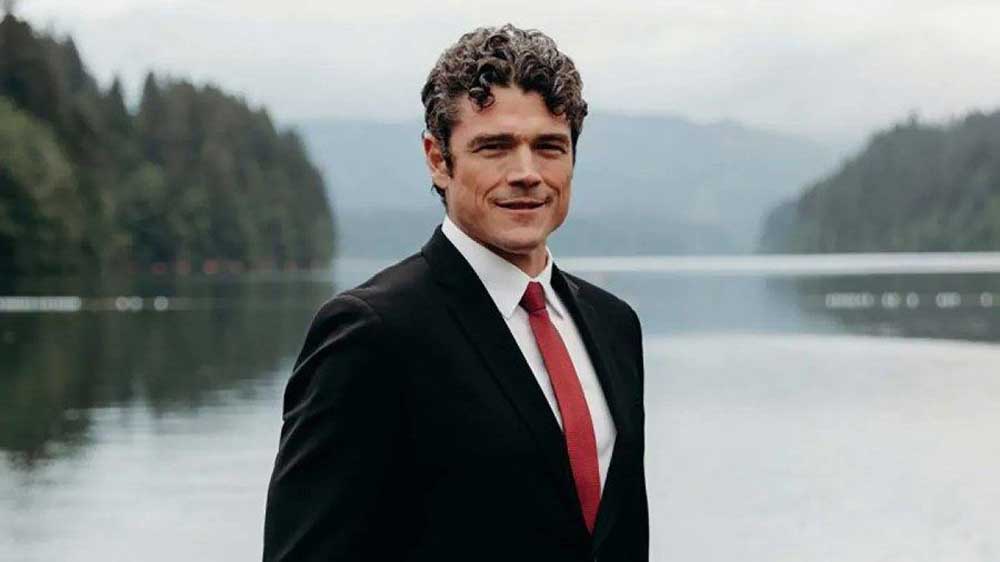OPINION: You’ve heard the doom; now here’s the other side of Portland’s economic coin
Published 5:00 am Thursday, March 6, 2025

- Portlanders and guests show up en masse every year to enjoy the annual blooming of cherry blossoms at the Japanese American Historical Plaza. A columnist says it's time to embrace economic theories that better serve the community and the environment.
The recent article on the metro area’s economy misses key points that can help us turn the region into a model for future urban economies, not a future of doom.
Trending
Mike Wilkerson cites the lack of growth as a key feature of a doomed economy and claims we need to compete with other urban centers for people and jobs. He also cites the greater death rate than birth rate as a feature that contributes to our decline. This is old-school economics, leading humanity and the diversity of creatures to the brink of environmental disaster.
The reality is that humanity, particularly in North America, has been living way beyond a sustainable future for our children and a healthy environment. We live on a finite planet that cannot contend with the traditional modern measurements of economic success.
Too much of our economic activity requires the unsustainable use of limited resources, and creates unsustainable streams of waste, including the excess carbon fueling climate change. And climate is just one of nine planetary processes that profoundly affect life on earth. Two excellent books describing these limits, as well as new ways of understanding sustainable economics are Doughnut Economics by Kate Raworth, and Enough is Enough, by Dietz and O’Neill.
Trending
Rayworth and other 21st-century economists write about the need to create new metrics that reflect a shift to regenerative economics and the meaning of human prosperity. We need measures that value and promote human and environmental health and happiness, independent of whether traditional measurements like GDP and population go up or down or hold steady.
Humanity needs a population that stabilizes if we are to have any chance of existing on a healthy planet with thriving life. This means we need a different way of understanding economics and economic goals. These goals include transitioning from the economics of competition to the economics of cooperation and interdependence, not only with other humans, but with the ecosystems of our planet.
With regard to the concern about lower birth rates than death rates, Mike Wilkerson omits the exorbitant costs of housing in the Portland area, making it an unwelcoming place for people who would like to come and live in this extraordinary place. Along with this limitation is the situation with migrants who would love to move here.
Between the current global political and environmental crises and instability, there are many who would love the opportunity to come to Portland for education and work if they were welcomed and temporarily supported, not hunted down and deported.
Wilkerson’s “urban doom loop” situation of declining tax revenues also has a remedy that perhaps Portlanders can institute to fund a transitional and regenerative economy. The Oregon Public Banking Alliance has been promoting a municipal bank for years. As we live into the beginning of the Trump administration’s defunding federal funds and jobs, this is the time to expand municipal funding resources by developing this powerful and underused financing tool.
As we contemplate and support Portland building a sustainable and thriving economy, we would also do well to heed the teachings of another economist with a similar name, Richard Wilkinson. Wilkinson and Kate Pickett co-authored the extraordinary book, The Spirit Level, Why Greater Equality Makes Societies Stronger.
The book chronicles their 30 years of research on what makes healthier societies, both physically and emotionally, with lower crime rates and greater happiness.
In her book, EcoMind, Frances Moore Lappe’ offers an optimistic voice that distinguishes between growth in material goods and energy requirements (which leads to the destruction of earth’s ecosystems and their transformation to polluted land, air, sea and clean waters), and the growth in knowledge, health, and I would add, restored healthy ecosystems.
There is plenty of work to be done to transition to a stable and healthy economy, plenty of potential jobs. Our current financing systems need to transition to value and support such an economy. Another way is possible.







